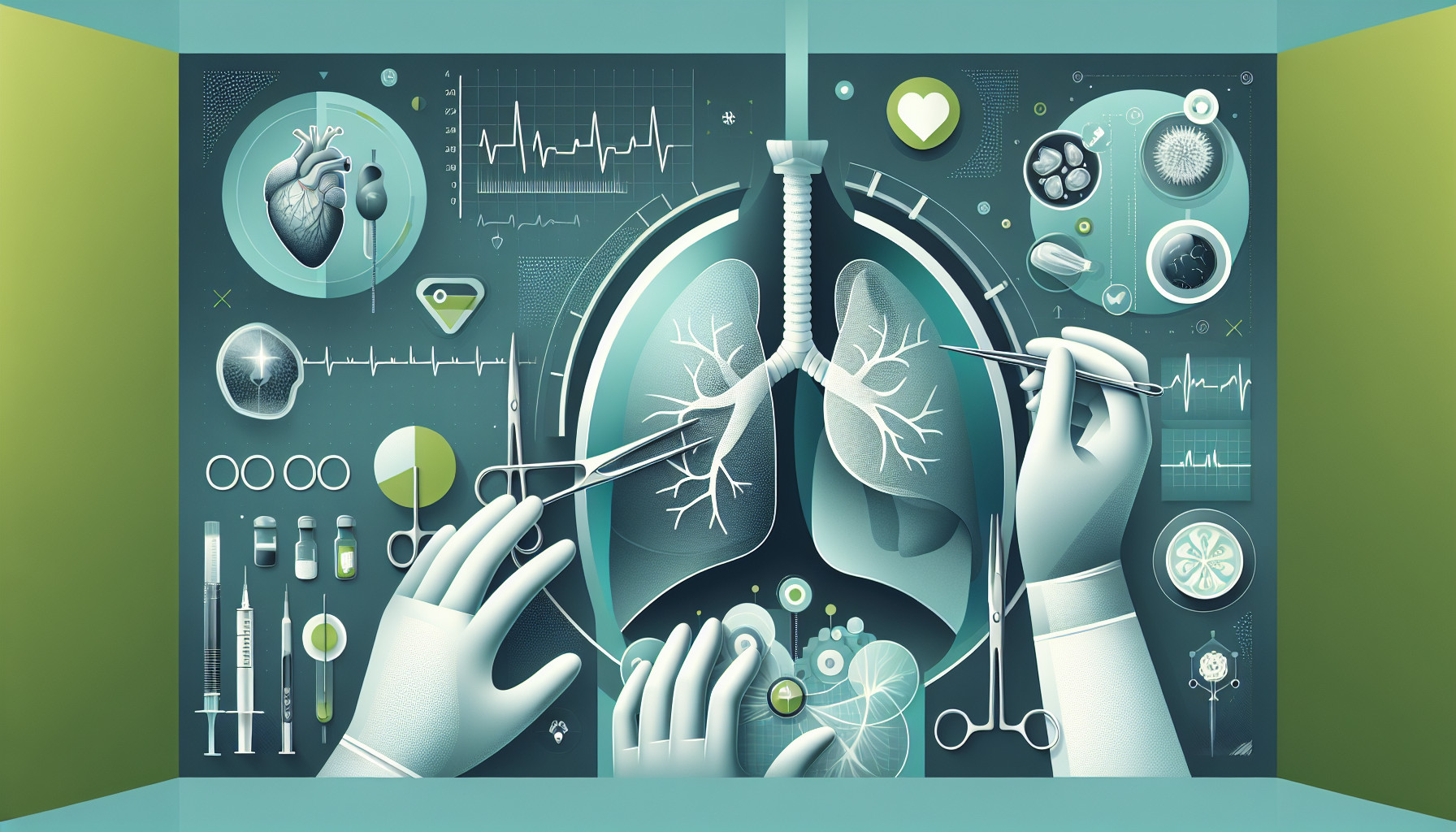Our Summary
This research paper is a review of studies that explore the experiences and attitudes of adults who have had lung transplants towards self-management - the process of taking care of their new lungs to prevent complications and maximize the lifespan of the transplant. The researchers looked at a variety of study types and included both published and unpublished works in English and German.
They found and analyzed ten studies, involving between 8 and 73 participants from North America and Central/Northern Europe. The quality of these studies varied, scoring between 3 and 9 out of 10 in their assessment.
The review found four key themes:
- Changes in routines, beliefs, and a sense of responsibility help lung transplant recipients adapt and manage their health better.
- Life after a lung transplant can have both positive and negative experiences and feelings.
- Successful self-management and adjustment after a lung transplant require dealing with personal feelings and beliefs.
- Interaction with relatives, friends, medical teams, and donors can improve the experience of being a transplant recipient and help adaptation.
The findings suggest that lung transplant recipients need to make emotional, social, relational, and psychological adjustments to manage their health successfully. Support from loved ones, health professionals, and possibly psychosocial or peer support can significantly help in this transition.
FAQs
- What were the main findings of this review on self-management in lung transplant recipients?
- How did the researchers assess the quality of the studies included in the review?
- What role does social and emotional support play in successful self-management after a lung transplant?
Doctor’s Tip
A doctor might tell a patient about lung transplant that it is important to follow a strict medication regimen, attend regular follow-up appointments, and participate in pulmonary rehabilitation to ensure the success of the transplant. It is also crucial to avoid exposure to tobacco smoke, air pollution, and other lung irritants to protect the new lungs. Additionally, maintaining a healthy lifestyle with regular exercise and a balanced diet can help improve overall lung function and quality of life post-transplant.
Suitable For
Typically, lung transplant is recommended for patients with end-stage lung disease who have exhausted all other treatment options and have a limited life expectancy. Some common conditions that may warrant a lung transplant include:
- Chronic obstructive pulmonary disease (COPD)
- Idiopathic pulmonary fibrosis
- Cystic fibrosis
- Pulmonary hypertension
- Bronchiectasis
- Alpha-1 antitrypsin deficiency
Patients who are generally younger, have good overall health aside from their lung disease, and are motivated to adhere to the post-transplant care regimen are considered good candidates for lung transplant. It is important for patients to undergo a thorough evaluation process to determine their eligibility for transplant and to assess their ability to comply with the necessary post-transplant care requirements.
Timeline
Overall, the timeline of a patient’s experience before and after a lung transplant can be summarized as follows:
Before the transplant:
- Patient is diagnosed with a severe lung disease and is referred for a lung transplant evaluation
- Patient undergoes a series of tests and evaluations to determine if they are a suitable candidate for a transplant
- Patient is placed on the transplant waiting list and waits for a suitable donor match
- Patient may experience worsening symptoms and complications as they wait for a transplant
After the transplant:
- Patient undergoes the lung transplant surgery and begins the recovery process
- Patient may experience complications and side effects from the surgery and anti-rejection medications
- Patient undergoes extensive rehabilitation and physical therapy to regain strength and lung function
- Patient must adhere to a strict medication regimen and follow-up care plan to prevent rejection and complications
- Patient must adjust to life with a new set of lungs and may experience a range of emotions and challenges in the adaptation process
Overall, the journey of a lung transplant recipient involves significant physical, emotional, and psychological adjustments before and after the transplant. Support from healthcare providers, loved ones, and peer groups can play a crucial role in helping patients navigate this challenging process and successfully manage their health post-transplant.
What to Ask Your Doctor
Some questions a patient should ask their doctor about lung transplant include:
- What is the success rate of lung transplants at this facility?
- What are the potential risks and complications associated with a lung transplant?
- How long is the recovery process expected to take?
- What medications will I need to take post-transplant and what are the potential side effects?
- How often will I need to follow up with my transplant team after the surgery?
- What lifestyle changes will I need to make to ensure the success of the transplant?
- Are there any support groups or resources available for lung transplant recipients?
- How will my quality of life be impacted after the transplant?
- What signs or symptoms should I watch out for that may indicate rejection or complications?
- How long can I expect the transplanted lung to last?
Reference
Authors: Rebafka A, Bennett C, Dunn C, Roche D, Hawker C, Edwards D. Journal: JBI Evid Synth. 2024 Sep 1;22(9):1656-1714. doi: 10.11124/JBIES-23-00070. PMID: 38757171
